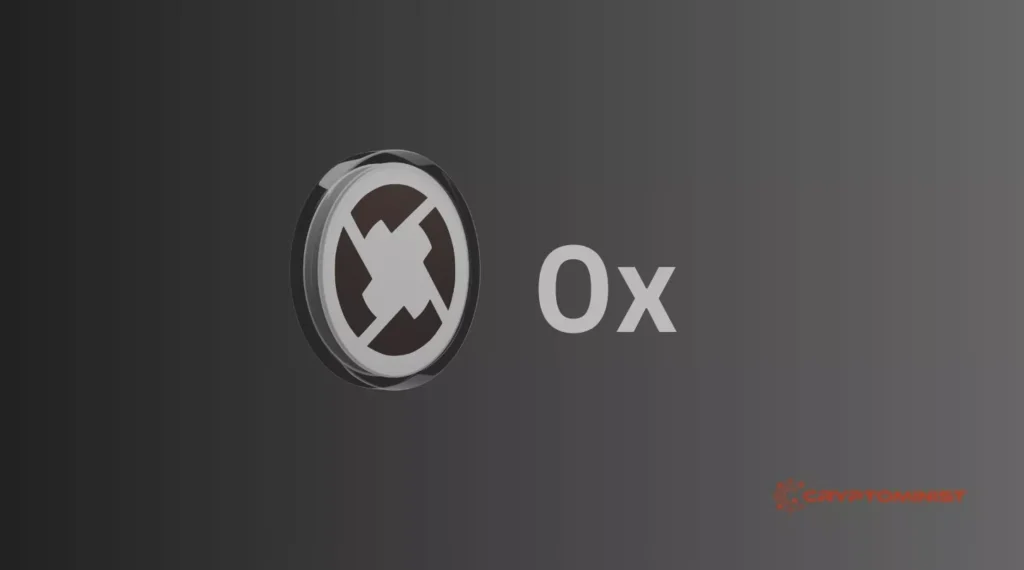0x is a blockchain protocol and open-source project that’s designed to facilitate peer-to-peer (P2P) cryptocurrency trading. This innovative platform, often dubbed the “backbone of decentralized exchanges,” allows developers to build decentralized exchange (DEX) applications on top of the Ethereum blockchain.
In this article, we will explore what 0x is, its core functionalities, its unique features, and the impact it has had on the world of cryptocurrency.
The Foundation of 0x

0x was founded in 2016 by Will Warren and Amir Bandeali. The project’s mission was to solve some of the most pressing issues with traditional centralized exchanges, including security risks, lack of transparency, and censorship. By creating a protocol for P2P trading on the Ethereum blockchain, 0x aimed to usher in a new era of decentralized finance (DeFi).
How Does 0x Work?
At its core, 0x is designed to act as a bridge for the creation of DEXs. The protocol offers a set of smart contracts and open-source infrastructure that developers can leverage to build their decentralized exchanges. Here’s how it works:
- Smart Contracts: 0x’s protocol operates through a series of Ethereum-based smart contracts. These contracts facilitate the trustless exchange of Ethereum-based tokens without the need for an intermediary.
- Relayers: To facilitate trades, 0x relies on relayers. These are entities (either centralized or decentralized) that host order books and match buyers with sellers. Relayers serve as the intermediaries in the order-matching process.
- Order Types: 0x supports various order types, including market orders, limit orders, and more, providing flexibility for traders and developers.
- Open Standards: 0x’s protocol uses open standards, which means that it’s interoperable with other decentralized applications and tokens. It supports fungible and non-fungible tokens (NFTs), among others.
- Security: By operating on the Ethereum blockchain, 0x inherits the security and transparency features of the Ethereum network. This significantly reduces counterparty risk.
- Gas Efficiency: 0x features gas-efficient trading by batching multiple trades in a single transaction, reducing the overall transaction costs for traders.
- Liquidity Aggregation: DEXs built using 0x can aggregate liquidity from various sources, providing a more competitive marketplace.
Advantages and Disadvantages of 0x
Here are the advantages and disadvantages of 0x:
|
Ox Advantages |
Ox Disadvantages |
| Interoperability: 0x is designed to be a flexible and open protocol. This enables a wide range of DEXs to be built on top of it, giving users numerous choices for trading platforms. | Complexity for Users: Decentralized exchanges built on the 0x protocol can be more complex for novice users compared to centralized exchanges. Understanding how to use wallets, interact with smart contracts, and manage private keys can be challenging. |
| Security: By operating on the Ethereum blockchain and inheriting its security features, 0x reduces the risks associated with centralized exchanges. | Lack of User Protections: Since 0x-based exchanges operate in a trustless environment, there is a lack of traditional protections found in centralized exchanges. Users are responsible for their security, and there may be a higher risk of losing funds due to user errors or scams. |
| Cost-Effective: The protocol’s focus on gas efficiency minimizes transaction costs, making trading more affordable for users. | Limited Token Support: While 0x supports various Ethereum-based tokens, it may not cover the full spectrum of cryptocurrencies available in the broader market. This can limit the trading options for users. |
| Liquidity: 0x’s ability to aggregate liquidity from various sources results in a deeper and more competitive trading environment. | Dependency on the Ethereum Network: 0x relies on the Ethereum blockchain, which can experience congestion and high transaction fees during periods of high demand. This can affect the efficiency and cost-effectiveness of 0x-based exchanges. |
| Accessibility: As an open-source project, 0x enables anyone to build and customize their decentralized exchange. | Competition: The decentralized exchange space is highly competitive, with many protocols and projects competing for users and liquidity. This competition can make it challenging for 0x-based exchanges to gain market share and stand out. |
The Challenges and Future of 0x
While 0x offers many advantages, it’s not without its challenges. Competition in the DEX space is fierce, with numerous other projects vying for dominance. Additionally, the development of regulatory frameworks for DeFi and DEXs remains an ongoing concern.
The future of 0x is closely tied to the broader adoption of DeFi. As decentralized finance continues to grow, 0x is likely to play a significant role. The protocol’s ability to provide liquidity to various DEXs and adapt to evolving blockchain technologies makes it well-positioned for the future.
Conclusion
0x is a critical player in the world of decentralized exchanges and blockchain interoperability. It has made P2P cryptocurrency trading more accessible, secure, and cost-effective, all while fostering an environment of open-source innovation. As the cryptocurrency space evolves and DeFi adoption continues to rise, 0x remains at the forefront of a decentralized financial revolution, enabling the development of more accessible and inclusive financial services.
If you like reading the above article, you may also like reading:







